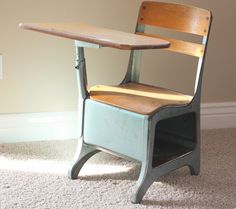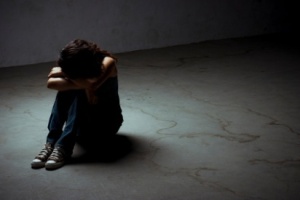
I know that not all homeschoolers have had a negative experience with the practice. I know that there are gentle parents who homeschool, and that everyone’s motivations for homeschooling are different. I get that. Fine. BUT. This does not discount my story and the many like it. For me and many others, homeschooling was a personal hell. Just visit a blog site like Homeschoolers Anonymous, and you will see heartbreaking story after story about those who were deeply hurt by homeschooling. I am not hard-lined against homeschooling, HOWEVER, our stories are the reason why homeschooling does need to be monitored and there must be accountability. The government creating accountability for homeschooling families isn’t some plot or conspiracy to take away your freedom. Let’s get that one thing straight. Homeschooling can be abused, and it happens a lot. Sadly, I don’t think we are a minority. So this opening paragraph is my disclaimer.
Kids in abusive homes often have at least one escape: school. They might make some really great friends, or have a teacher who believes in them and supports them. I am not discounting negative school experiences. Bullying exists, both from students and teachers, and many schools are punitive in their approach which is damaging. I mean, it’s still legal in 19 states to use corporal punishment in schools! That is a BIG problem. We need to change that. School can be an abusive environment, too, but…there are many great schools out there that can provide a safe haven for lots of kids. I didn’t have the advantage of that safe haven.
I was homeschooled from kindergarten through 6th grade. After that, I went to the small Adventist grade school in town, and after that was sent to academy. None of these things were the greatest for me, but the school environment, even though it was Adventist, was by far better than the home environment.
Imagine being afraid to be alone in the house with your mother, but having no way of every escaping that predicament. Imagine being alone with the person you most fear basically all day, every day. No breaks during the school hours, just that many more hours of hyper vigilance and getting to experience her rages. And many hours of isolation.
The fact that I was homeschooled hid much of the abuse, I think. I don’t have very many clear memories of those years, but I wonder, had I been sent to school, if a kind teacher would have noticed anything and could have helped me. I mean, maybe that is wishful thinking, because I was pretty good at making everyone think that I was the happiest child in the world, but who knows.
The isolation was difficult. I am a very social, extroverted person, so the fact that my mother made no effort to make sure I got healthy social interaction with peers harmed me. I was lonely so much of the time. It was worse when we moved to Colorado and my family started their own Adventist church plant. I was 10. At least before the church plant, I was able to make friends at church. But when my family started that church, my brother and I were the only kids. The small group of Adventists comprised mostly of seniors. I would get up front every week and tell “children’s story” to my brother and the 12 or so mostly older adults. I longed for friends. Being home alone with my scary mom all day and not even getting to enjoy friends on Sabbath was difficult for me. I wasn’t involved in any sort of social activity because my mother just didn’t make the effort. No clubs or choirs or homeschool groups. Pathfinders didn’t even come until about the time I started school. When I did enter the Adventist grade school in 7th grade, I was made fun of because I was so behind in my social skills, and I am a person who is highly attuned to social behavior and interactions! It was just…awkward, to finally enter school at an already difficult age (puberty) after so much isolation. I had no idea what kick ball or dodge ball or foursquare were. I didn’t know how to play any of the recess games and was unskilled in the highly physical games. My mother didn’t even engage us in much physical activity. It was embarrassing and most days at recess I just felt ashamed and even more isolated because no one wanted to include me.
My mom was not very involved in my “homeschooling.” She ordered the textbooks and that was it. I had no lesson plans, no schedule, no guidance on what to do with the books. She did read with me in the younger years and help me learn my phonics and such, but that was the extent of it. By the time 3rd grade hit, I was completely on my own. I had to read the textbooks and try to figure out what to do, then check my own work with the teacher’s edition. My mom especially threw up her hands when it came to math, which was already a harder subject for me. I had huge gaps in my understanding of basic math, which set me up for a lifetime of issues with the subject. Honestly, I don’t know how I learned anything at all, except that I was a smart kid and a reader. I credit the fact that I was somehow able to pull through during those early years of schooling and turn out ok to my own intelligence and creativity, not to my mother’s chosen method of schooling. When I went to school and finally started taking tests for the first time, I did very well. My first standardized test results put me in the 95th percentile. My mother beamed over this, saying it proved the superiority of homeschooling and her teaching. Not really. I just got lucky. I was smart enough to figure out how to pull through. Others have not been so lucky…my brother being one person. The credit for my academic success goes to my creativity, not to her (although, I will say that one good memory that I have of her is of her reading to me, which I’m sure DID help me. But in the vast and entire picture of my education…she didn’t do much). And how much better of a student would I have been had I received proper educational instruction during those years! Maybe I wouldn’t have been quite as bad at math.
The isolation hurt me. The educational neglect hurt me. And those added hours, days, weeks, months, years with my mother probably heightened the symptoms I experience now as a result of an abusive home environment. Homeschooling helped to hide the abuse. Homeschooling felt like a prison to me. To this day, I shudder thinking about those times of loneliness and fear. Her rages were bad. Ever seen the movie Mommie Dearest? Yeah, try living with that 24/7 with no escape. It hurt me.
THIS is why I call for accountability when it comes to homeschooling. And, while I firmly believe in the importance of play and in using positive discipline rather than punitive methods in the classroom…I will not be homeschooling my children. I will search high and low for a school environment that I think will best serve them, but that will not be in homeschooling. I will fight for more playtime for students and for them to be treated with respect and for their schools to be safe places both emotionally and physically, but I will not turn to homeschooling to solve the problems that education faces.

 It has been a long time since I wrote on this blog. No, I haven’t forgotten about it. And yes, I still have a lot to say. It’s just that sometimes…I feel all the things that I want to say, but the words are blocked. Or I know the things that I want to say, but the feelings don’t come. It’s an odd extreme, to either feel everything or nothing. And sometimes these polar opposites make it difficult to know where to start when it comes to writing. Especially writing on a public blog. I vacillate between wanting to tell the world my story and wanting to keep it all a secret, even from myself. But, with the holidays, there are things that come rushing back that can’t be ignored. So…maybe writing will help.
It has been a long time since I wrote on this blog. No, I haven’t forgotten about it. And yes, I still have a lot to say. It’s just that sometimes…I feel all the things that I want to say, but the words are blocked. Or I know the things that I want to say, but the feelings don’t come. It’s an odd extreme, to either feel everything or nothing. And sometimes these polar opposites make it difficult to know where to start when it comes to writing. Especially writing on a public blog. I vacillate between wanting to tell the world my story and wanting to keep it all a secret, even from myself. But, with the holidays, there are things that come rushing back that can’t be ignored. So…maybe writing will help.



